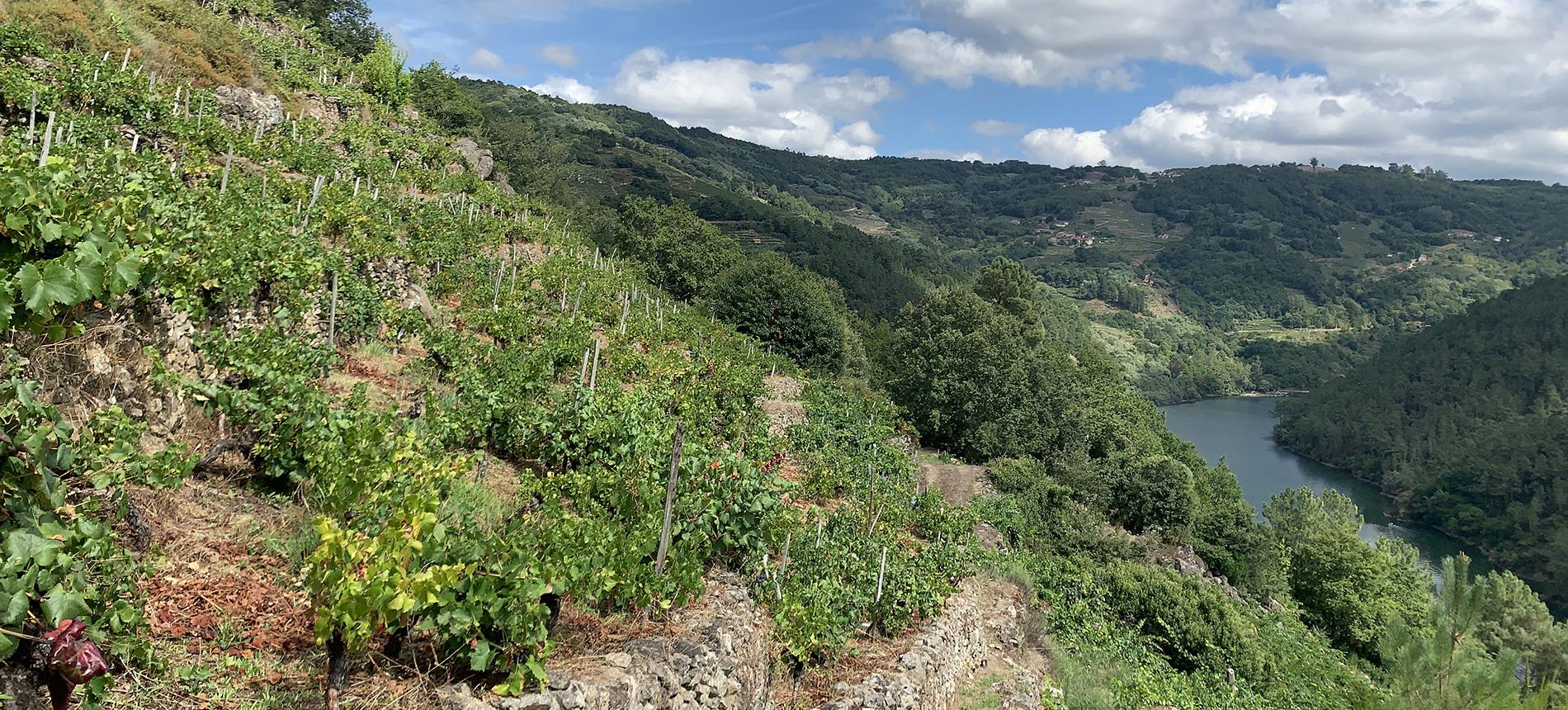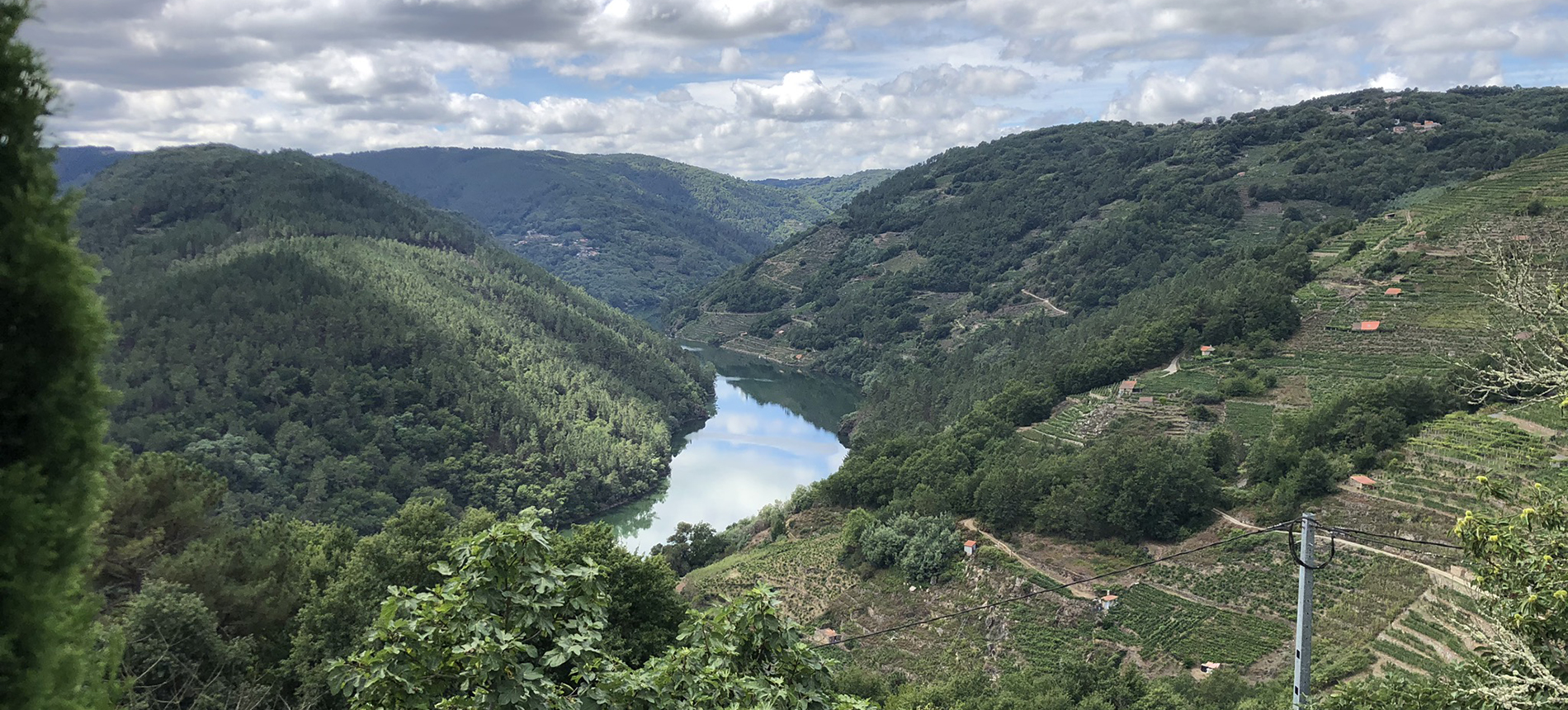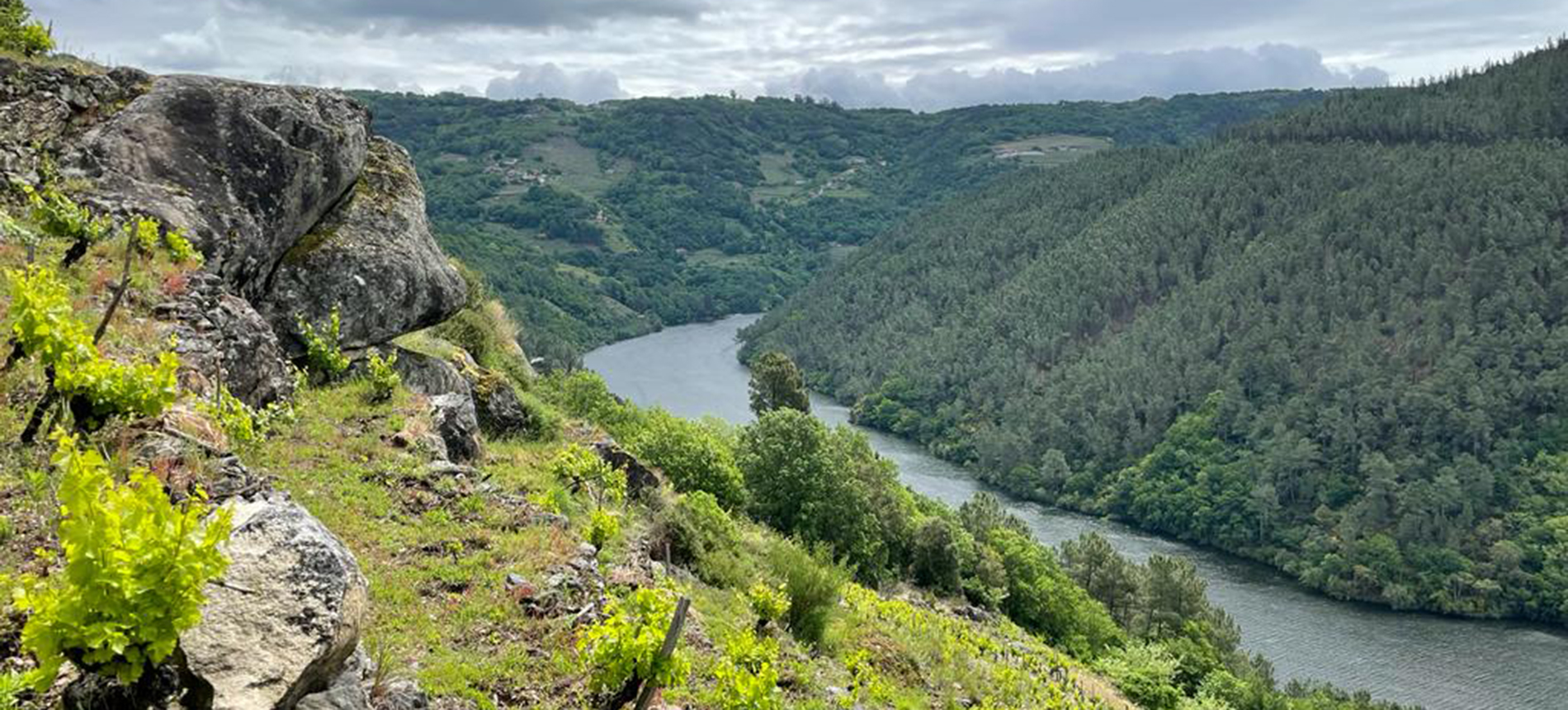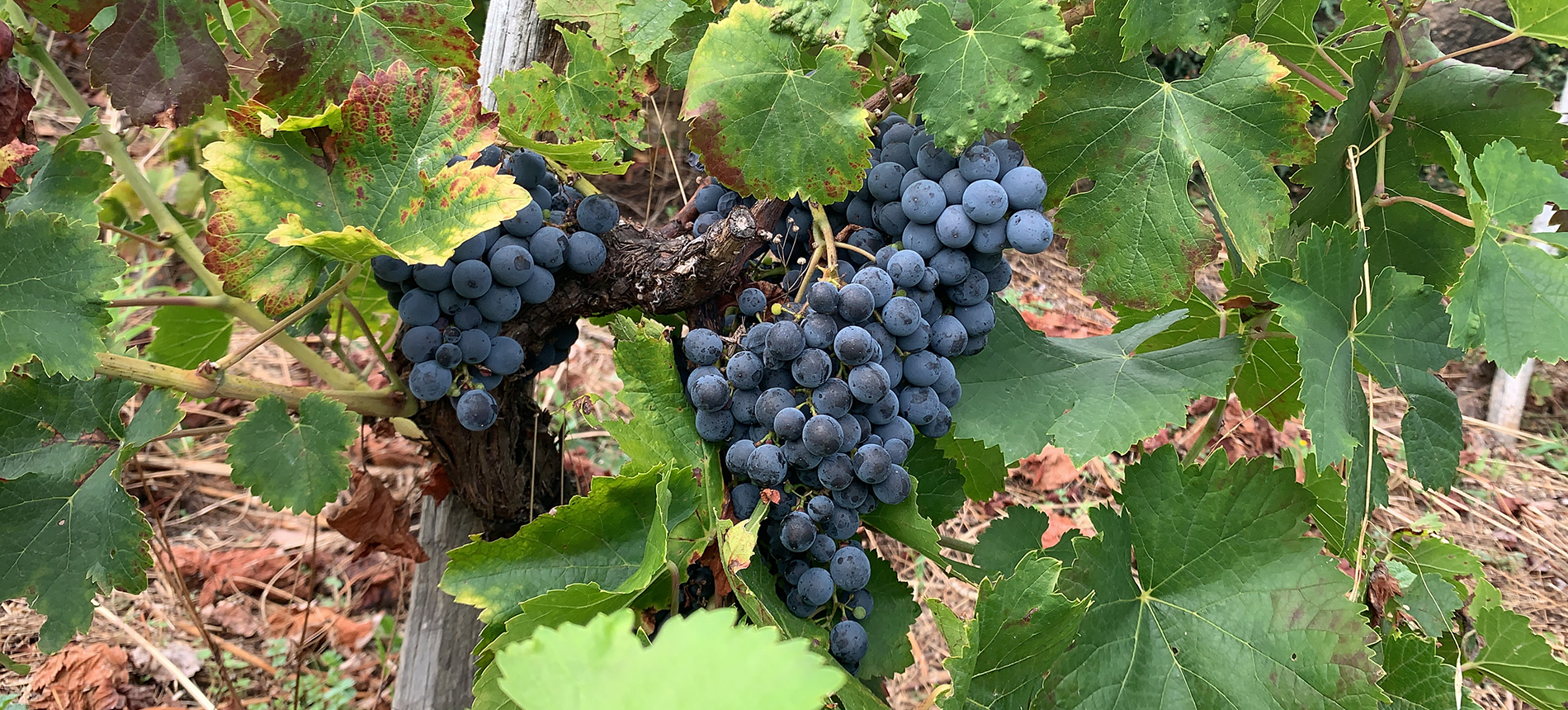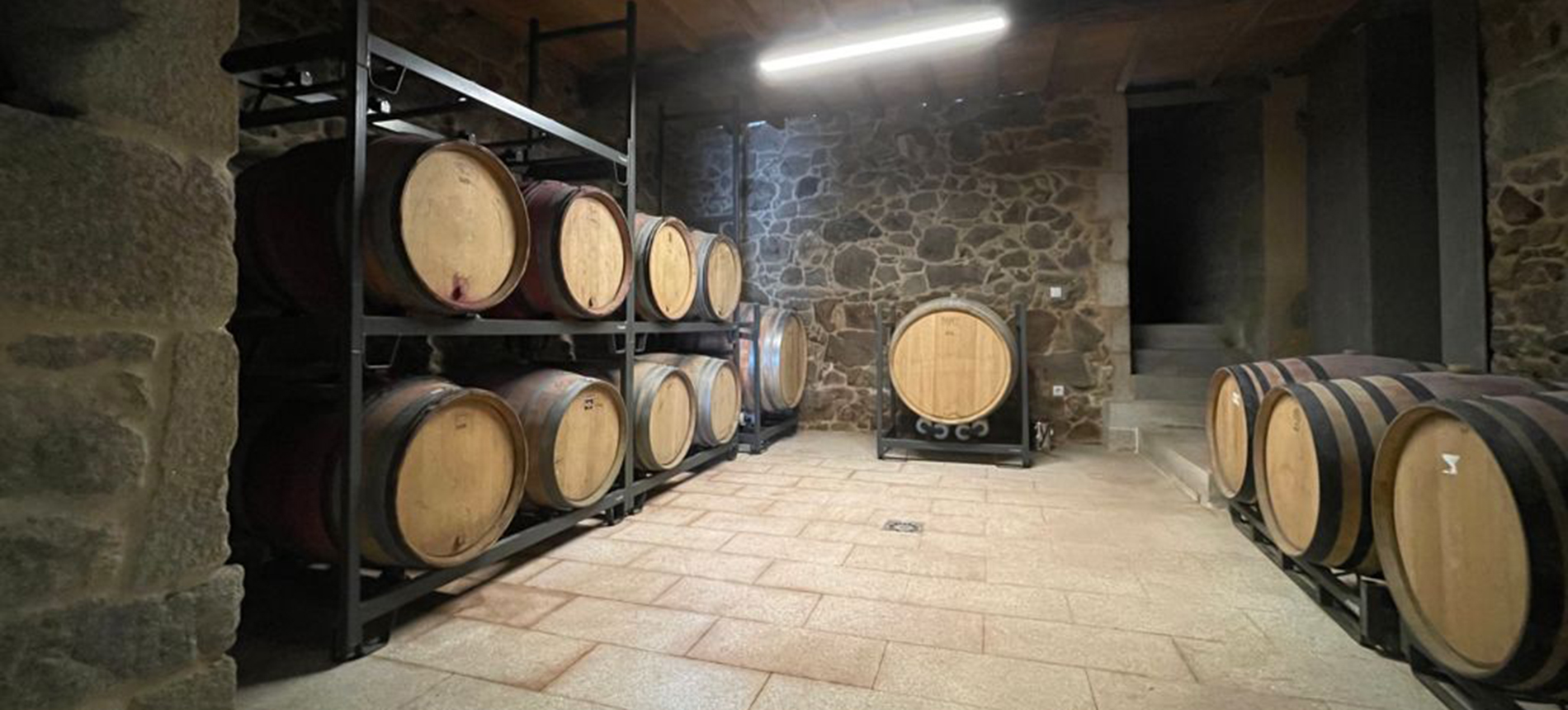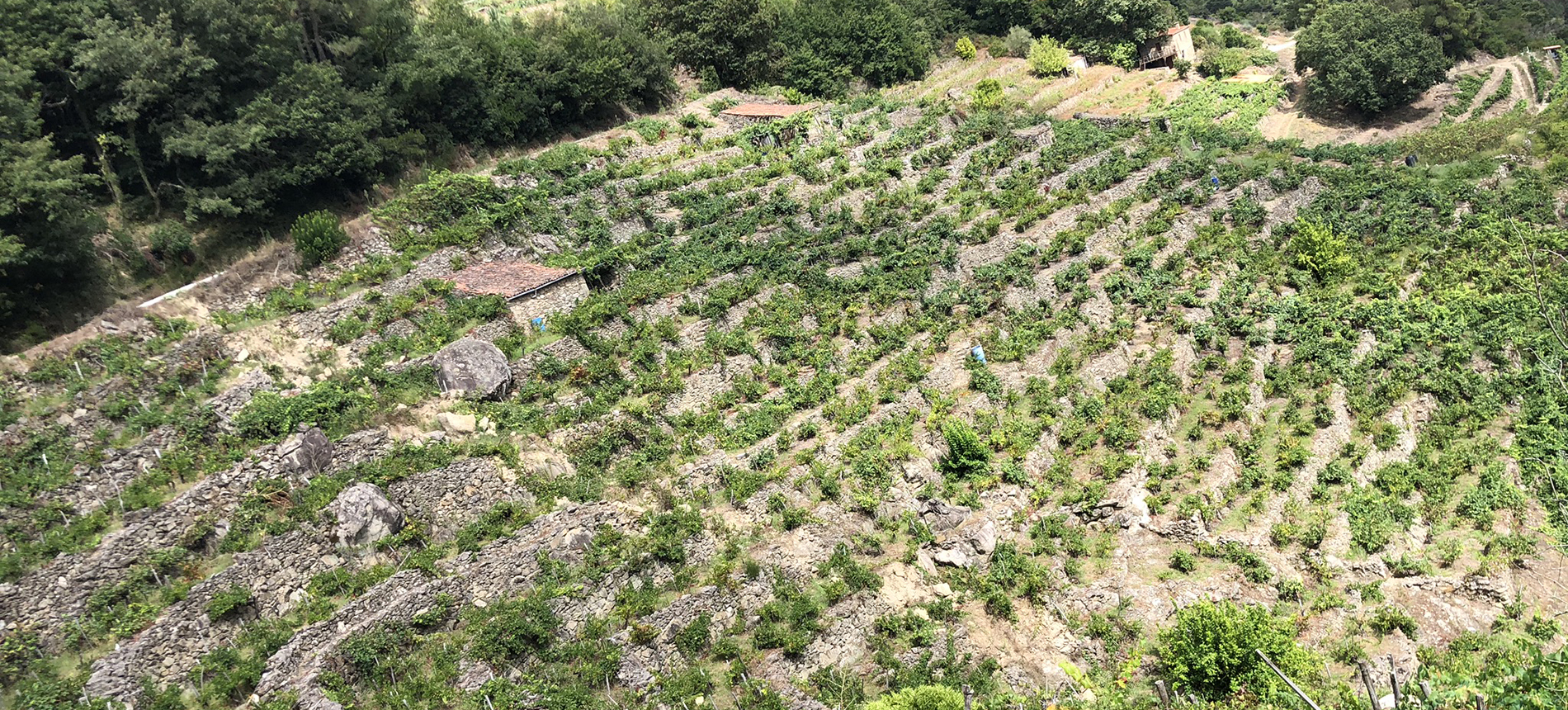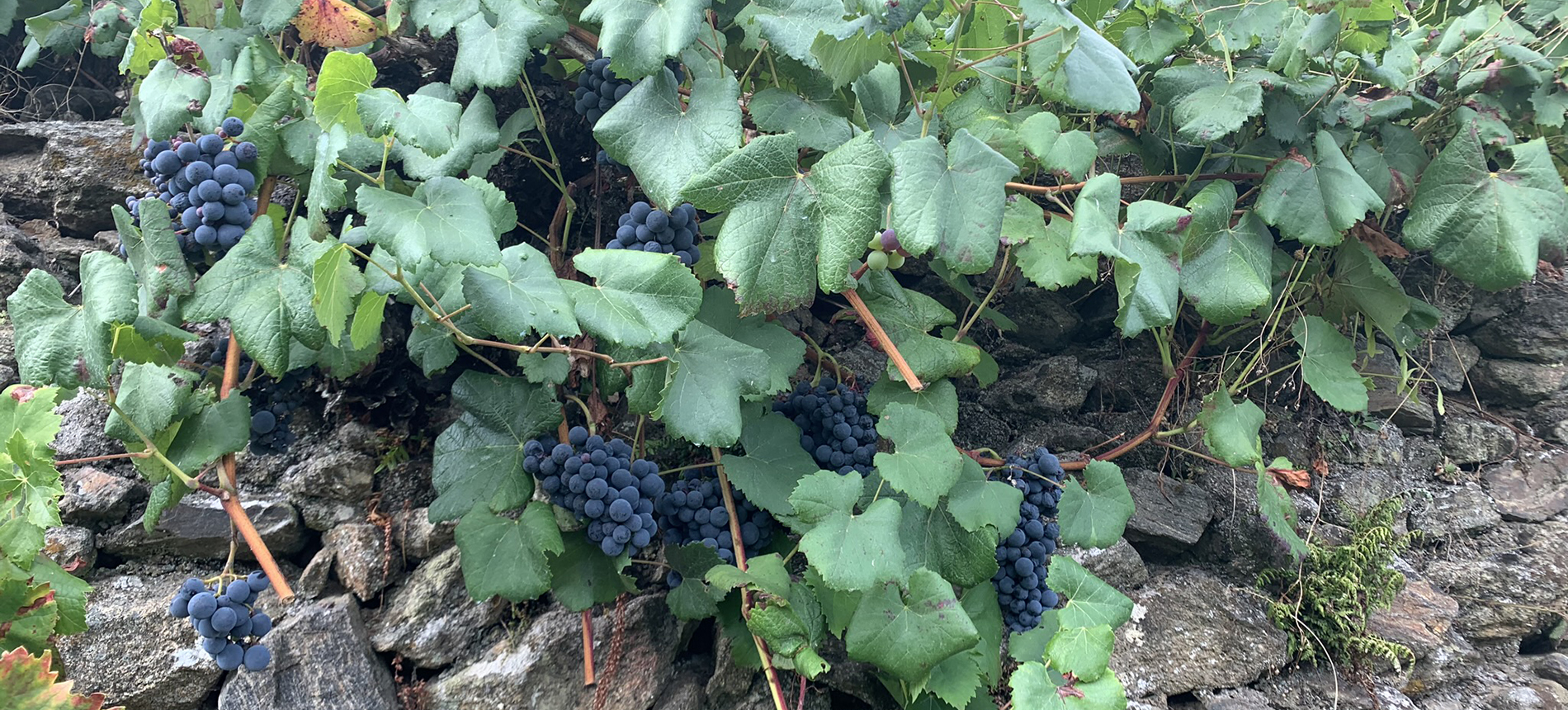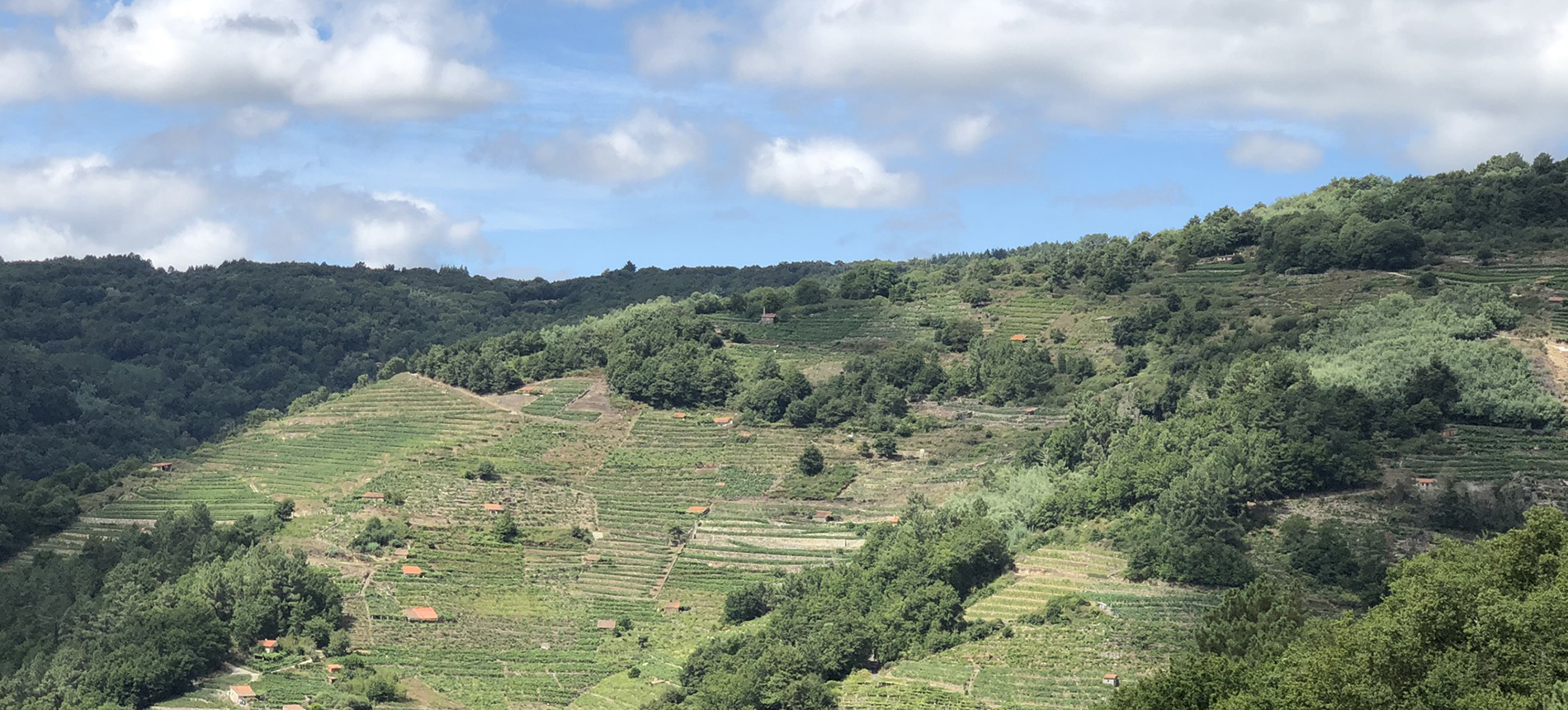Thanks to Rare Wine Company for the below text.
Eulogio Pomares is famed for his ground-breaking work at his family’s Rías Baixas’ estate, Bodegas Zárate. His single vineyard Albariños there helped redefine the variety’s ultimate potential, and he was also at the vanguard in recovering the region’s once-prominent red varieties. A proud Galician, Eulogio was further enticed by the immense potential he saw in the forbidding mountains of nearby Ribeira Sacra. Together with his wife, Rebeca Montero, he launched a new project, Quinta do Estranxeiro, there in 2019 that is already adding to his formidable legacy.
An Emerging Treasure
Ribeira Sacra’s dramatically steep hillsides are so obviously suited to the vine, it is a marvel the region’s wines have remained in obscurity for so long. There, the Miño and Sil rivers have carved the native granite into a complex network of exposures and micro-climates. And, with a 2,000+-year winemaking heritage, the local grape varieties had adapted superbly to give voice to those myriad terroirs. Yet despite the appellation’s enormous potential, its wines remained in obscurity long after Spain’s quality revolution bloomed in the 1990s. The sheer remoteness of these steep mountain valleys was surely a contributing factor. However, the greater impediment was undoubtedly the immense challenge of tending vines on these rugged slopes. With bush pruning and precipitous slopes, virtually all work must be done by hand or, occasionally, mules. Small parcels and regular terrace maintenance made it difficult for anyone to grow commercial quantities. In fact, the hard, physical labor necessary to maintain vines here has often been called “heroic viticulture” in the press. All of this meant one thing: By the turn of the century, many of the region’s finest parcels had been abandoned. But not all. A quiet renaissance began in the late 1990s, as early local pioneers like Algueira and Guímaro gained prominent footholds. With Raúl Pérez’s arrival in the early 2000s, Ribeira Sacra was placed back on insiders’ radars, and the region slowly gave rise to several more exciting projects.
The Vineyards
Eulogio and Rebeca found real kindred spirits in Ribeira Sacra’s early pioneers, and the group often shared ideas as they each developed their own wines. It was not until 2019 that the couple began to produce their own wine in Ribeira Sacra. But having known the region’s key players for years, they knew just where to look when launching their own label. They work with two primary sites for the Ribeira Sacra red, both on steeply terraced hillsides featuring 50+-year-old, bush-trained vines. A vineyard on the Sil river (Amandi sub-zone), has warmer, southern exposures, and features slate mixed with granite. The second vineyard, in A Cova on the Miño river (Ribeiras do Miño sub-zone), is planted on granite soils and gets more cooling, Atlantic influence. White grapes are much rarer in the appellation, but the couple has small plots in the Quiroga
sub-zone on slate soils, and another near their winery in the Ribeiras do Miño sub-zone. The younger white vineyards are mostly trained on wires to help fight mildew pressure in this damp climate. They farm all their vineyards organically – an enormous commitment in Galicia’s humid, often rainy climate. For both wines, the opportunity to blend fruit from divergent terroirs gives the couple opportunity to maximize their wines’ final balance and complexity.
The Wines
The “O Estranxeiro” Tinto is mostly made from Mencía. Fruit is picked by hand and destemmed, and the juice is transferred to large chestnut barrels and concrete tanks before fermentation commences spontaneously with wild yeasts. The must typically spends around three weeks macerating before pressing, and the wine is then aged in a mix of Italian Gamba botti, Garbelotto botti, and concrete tanks for 6-12 months before bottling. The “O Estranxeiro” Blanco is made primarily from Godello, with Albariño and Treixadura also present. Fruit is picked by hand and de-stemmed before transfer to tank for fermentation. The wine rests on its lees in tank for 6-12 months before bottling. No SO2 is employed in the winemaking, and only a small dose is added just before bottling. What Eulogio and Rebeca have accomplished in a few short years is nothing short of remarkable. The couple’s early bottlings are already among the most striking wines in Ribera Sacra and – with the recent launch of a dedicated winery – their quality and renown promise to keep ascending.
